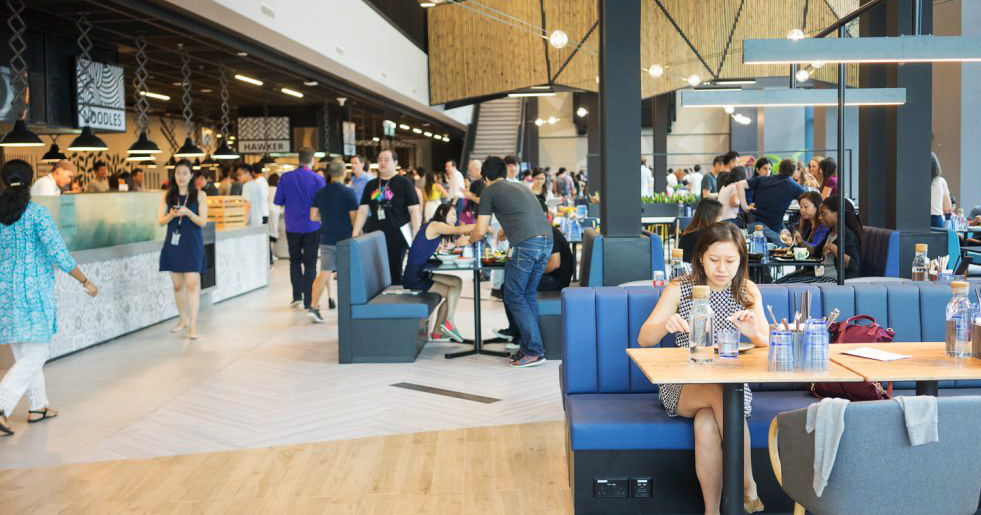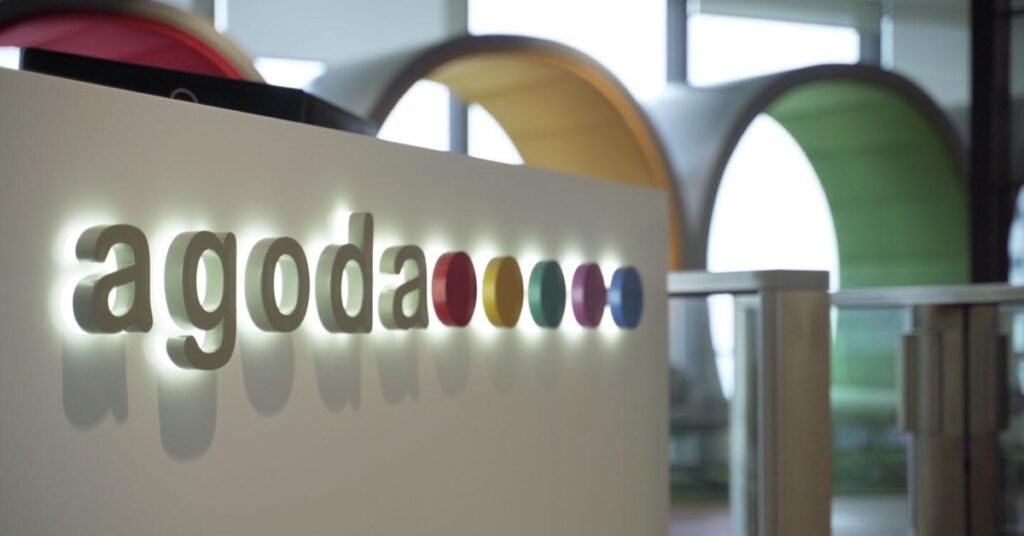Last week, Hewlett Packard Enterprise (HPE) announced that they are rolling out various employee programmes, including 26 weeks of paid leave for new mummies and daddies.
Other programmes include Parental Transition Support, Retirement Transition Support, as well as ‘Wellness Fridays’ where employees are encouraged to leave office three hours early on one Friday each month.
Said Narinder Kapoor, managing director of Asia-Pacific (Apac) at HPE: “We want all of our employees to be reaching their full potential in their careers. That means supporting them as they grow their families as well. We are very proud to be rolling out this global initiative for our employees.”
“By investing in our highly skilled and motivated workforce, we will cement HPE’s position as an employer of choice globally and here in Singapore.”
Beyond just a decent salary, there is a lot more that job-seekers consider before signing a work contract.
For example, benefits like annual leave and medical/dental claims are pretty standard HR perks, but there are companies that also offer benefits like stock options, catered lunches, or the option to take a sabbatical.
We talked to 7 Singaporean millennials from different industries and found out more about what they understand about HR benefits, and which ones they actually care about.
Hannah, 27, Public Relations
What’s your definition of HR benefits, and what are some that you can name?
Provisions to ensure that staff is well taken care of. Things like medical, dental, annual leave.
If you could pick, which HR benefit is the most important to you and why?
Medical and dental!
Those are the most costly and it makes me feel like the company really has my welfare in mind.
In your knowledge, are Singapore companies providing sufficient HR benefits, and what can be improved?
It is sufficient, but I think something that can improved is finding ways to accommodate people’s lifestyle arrangements. For example, giving the option to work from home.
Tasha, 26, Marketing
What’s your definition of HR benefits, and what are some that you can name?
Basically any type of benefit that comes from working at the company. This could be written in stone (i.e. medical coverage) or could be something the company does occasionally (i.e. paid company lunch/dinner).
Here are several benefits that I can think of: insurance coverage, medical/dental/TCM/Chiro coverage, flexible benefits, phone bill coverage, non-capped leave, option to work from home.
If you could pick, which HR benefit is the most important to you and why?
For me, it’s the flexibility of working from home. Sometimes I just need a change of environment (and/or I just want to avoid face-to-face contact with people).
I’m still at work, but I can do it with a view or in a nice cafe.
In your knowledge, are Singapore companies providing sufficient HR benefits, and what can be improved?
I don’t think so for Singapore-based companies.
I think management needs to keep an eye out, everyone is working their butts off on the daily and Singaporeans will rarely complain to the boss. They just leave.
Managers need to have good enough EQ to notice what their employees require. It’s easy to say, but employees should also raise these issues to managers. But I’m pretty sure a lot of managers don’t take action, either.
Yvette, 25, Real Estate
What’s your definition of HR benefits, and what are some that you can name?
All things related to perks that will make me want to go the extra mile for my company.
Some of the more common benefits are medical insurance, annual leave, flexible working hours (which in turn leads to work-life balance).
Oh, and a well-stocked pantry. And I’m talking more than 3-in-1 coffee and a few packets of biscuits that come from god knows where, haha.
If you could pick, which HR benefit is the most important to you and why?
Flexible work hours. In most situations, there will always be work to be done. Work life balance doesn’t mean just being able to leave on time, regardless of whether or not your work is done.
I feel it’s more a case of giving staff the choice, freedom and trust to schedule their work and other aspects of their life.
In your knowledge, are Singapore companies providing sufficient HR benefits, and what can be improved?
On paper yes, more and more companies are providing enough HR benefits. But as someone who has worked for several local companies, I think that many bosses have to deliver on what they promise.
This is especially so when it comes to smaller-sized companies.
On the other hand, I do understand from a business owner’s standpoint that you don’t want staff to misuse all these benefits and perks.
Ultimately, it boils down to how you manage your staff and how much give and take there is.
Valerie, 27, Retail
What’s your definition of HR benefits, and what are some that you can name?
I believe basic HR benefits should include whatever MOM has laid out and then some.
Besides increasing the number of annual leave days, there should be extensive medical benefits since employees spend the majority of their time working.
I also think there should be transport allowance of some sort and training/upskilling opportunities initiated by the company.
If you could pick, which HR benefit is the most important to you and why?
Career development opportunities provided by the company is the most important to me because I personally do not like to stay stagnant at a job.
While it may be comfortable to do the same things day in and day out, I think it’s important to grow and step out of the comfort zone when the time calls for it.
Like a cycle—if the employee grows, the company grows too, which in turn breeds growth for the employee in another way.
In your knowledge, are Singapore companies providing sufficient HR benefits, and what can be improved?
They are not providing enough HR benefits, in my knowledge. This is especially so for SMEs that remain stuck in outdated work practices and startups that have weaned off the developmental stage.
Perhaps companies can see investment in employees as a long-term asset, rather than an expense in the short-term.
Something they could do is to hire a HR specialist or engage a third-party vendor to manage, or even better—cultivating an existing employee to focus on creating an infrastructure or at least a framework, and then building it up from there.
Yeo, 26, Consulting
What’s your definition of HR benefits, and what are some that you can name?
To me, HR benefits are perks that one can enjoy when working at the company.
Some benefits include: insurance coverage, allowance for professional development, medical claims, free coffee/snacks and cab claims after certain hours.
If you could pick, which HR benefit is the most important to you and why?
I had OT-ed a lot in the various companies but what I’m really grateful for are complimentary dinners instead of the ability to ‘Grab’ home.
I think Grab-ing home is a choice but everyone needs food. The dinner will keep me productive for the next hour or two. But most importantly, free food is the best food!!
In your knowledge, are Singapore companies providing sufficient HR benefits, and what can be improved?
I think Singapore companies are providing sufficient benefits even though it may seem lacklustre as compared to large companies in Europe or America.
Some things that can be improved are perhaps the communication of such benefits to the employees, maybe sending reminders that they still can claim a certain amount, or maybe have a rotating benefit feature – for example, this month every Thursday is free dinner, next month is fruits day, bonding activities, or allowing employees to cash out if they didn’t enjoy these benefits!
Julius, 25, Media
What’s your definition of HR benefits, and what are some that you can name?
Incentives that a company would provide to ‘sweeten’ the contract or to things put in place to keep morale high.
Benefits such as medical/dental, paid time off, insurance plans, allowances, phone bill subsidies, career development courses.
If you could pick, which HR benefit is the most important to you and why?
I would think that it depends on the situation.
In my job scope, I would think either travel claims or classes to develop my skills.
Relevant classes are important for self-development and would not just ‘level-up’ my skills, it will also impact my output for the company.
In your knowledge, are Singapore companies providing sufficient HR benefits, and what can be improved?
I think for media companies in Singapore, HR benefits vary greatly across companies.
Some companies have amazing HR packages, but if you were to work at a startup for example, they may have more ‘innovative’ HR benefits but they often lack certain ‘basic’ stuff too, like medical claims.
But of course, they just might not have the capacity to do so yet.
Morgana, 29, Retail
What’s your definition of HR benefits, and what are some that you can name?
My understanding of HR benefits are policies or programs to support employees in their personal or professional journey so that they can be their best selves at work.
Other than the standard annual leave and medical benefits, other HR benefits I’ve heard of are gym memberships or in-house gyms, catered lunches, and mentorship programs.
Depending on the company, there are also quarterly products that employees can get, usually around $300+ in value per quarter.
Some companies also give a one-off payment to people who quit smoking, referral fees for new hires.
If you could pick, which HR benefit is the most important to you and why?
Annual leave! Or you could give flexible working hours, which is great. But at the end of the day, how you want to use your annual leave is up to you.
Having more leave gives me more flexibility to decide how I want to spend my free time, and it lets me take longer holidays too.
In your knowledge, are Singapore companies providing sufficient HR benefits, and what can be improved?
I think the insurance coverage could be improved, ideally to cover basic dental checkups as well.
Other than standard benefits, it would be great to have more programs to develop relevant skill sets.
Not everything can be learned from the current job scope that we have.
If there are skill sets identified to be key to a company’s growth then there should be more formalised training programs to upskill current employees for longevity on both employee tenure and company development.
Also, the HR culture of flexibility is very important. Delivering quality work in a timely manner is key, and if an employee is able to do this then there is no need to be too hard up on whether she comes in slightly late or doesn’t clock OT.
- What is a ‘must-have’ HR benefit for you, and do you think Singapore companies in general need to do more for their employees? Let us know!
Featured Image Credit: M. Shazni / Vulcan Post
Also Read: From Free Holidays To Subsidised Childbirth, Here Are 6 S’pore Companies With Great HR Perks











